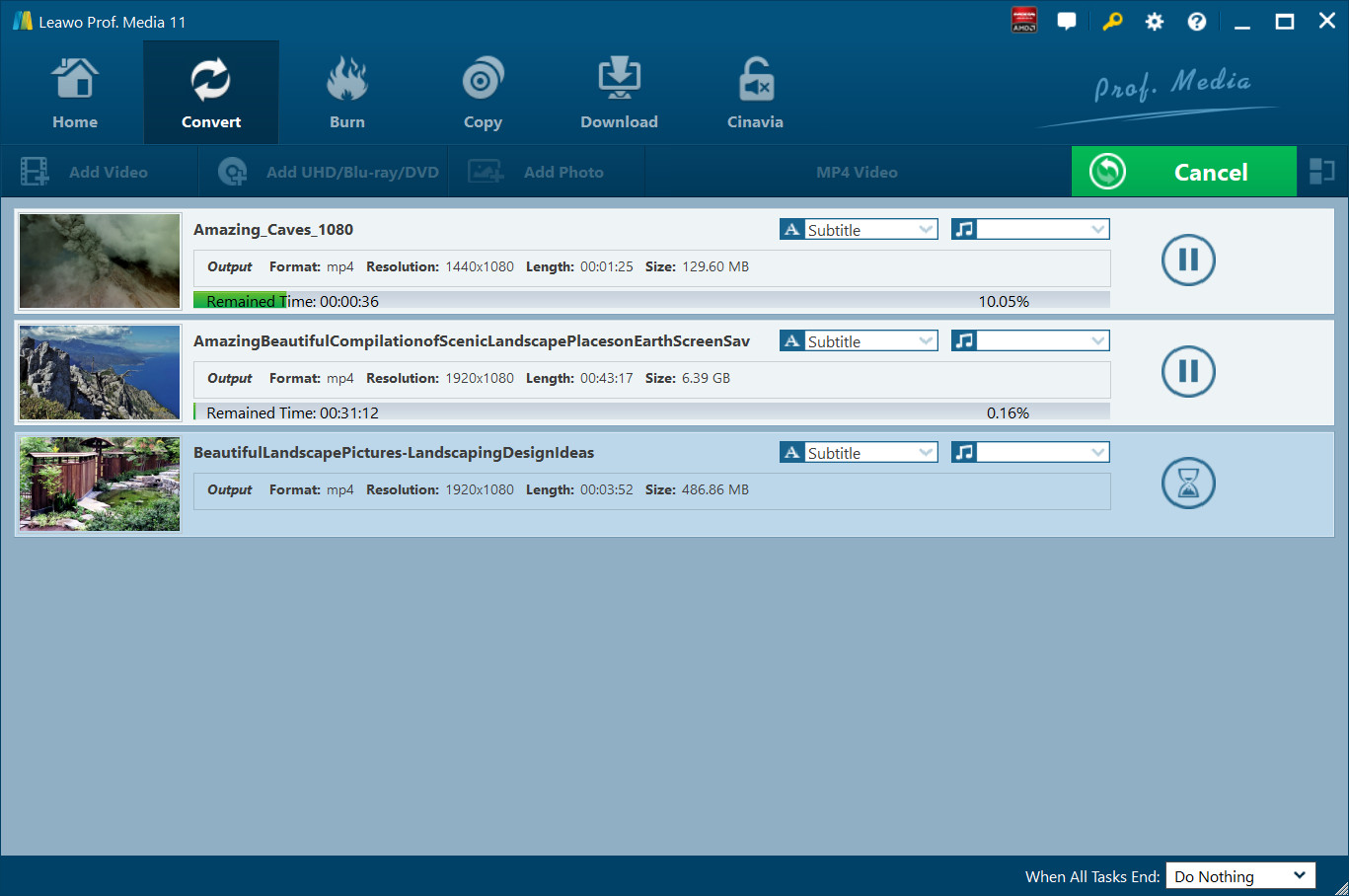

The reason Leawo DVD Ripper costs $30 a year is because the DRM on that video DVD you bought prevents something like Handbrake from reading the correct video in the correct VOB files in the correct order. Reading the mpg2 video & AC3 audio inside the VOB files on a video DVD is no big deal, & neither is re-encoding that audio/video. "Handbrake can process most common multimedia files and any DVD or BluRay sources that do not contain any kind of copy protection." #14: "Well as I read this I’m actually ripping DVD’s with the best there is and its free, Handbrake." In this case Leawo has to stay current with the latest DRM as it appears, & adapt their code to handle it. I normally don't like Any software licenses that just last a year, but at least with security software & rippers or copiers I can understand it - it's not a matter of just writing the program's code & then fixing any bugs that crop up, but continuously doing research, & that has to be paid for somehow. #10: "The text on GOTD did not tell, that is not a free program, but a licence for a year." If/when you re-encode DVD or broadcast video, software can include those repeated frames as actual new frames, needlessly increasing the size of the file. Note that most movies are shot at 24 fps, but the NTSC standard in North America means that TVs & DVD players want 29.976 fps - on a DVD this is accomplished by flags in the file telling the player to repeat frames. If reducing the bit rate beyond that hurts quality more than you'd like, consider reducing the frame size &/or fps - the fewer pixels you have to store, the smaller the file storing them is going to be. When you're encoding video the output file size depends on the frame size of the video, the fps, the type or format of video compression used, and the amount of video compression applied, usually controlled via bit rate or quality settings - just like with jpeg images, the less compression you have, the better it'll look, but the bigger the file.įor standard sized video, AVC with a bit rate of 1.3-1.5 usually works well, but that won't give you the smallest file. #8: "any way to specify a target max size? that seems to always come out too big…" "NOTE! If you install all the included codecs/decoders you might get problem with other video software on your computer." The K-Lite Codec Pack page at carries this warning: This program can install K-Lite Codec Pack and checked this when start install!" A 6 or 7 GB mpg2 video file can look very good & take up only 1-2 GB re-encoded to AVC. Which I think is why they have rippers - Leawo DVD Ripper will take the DVD video that's stored in the decades old mpg2 format & re-encode it into the much more efficient AVC/H.264 that most media players, cells, & tablets handle today. That said, discs do take room to store, it's more hassle to find the one you want & insert it into a drive, & many devices don't have a DVD drive in the 1st place. :) Undamaged, they have a longer life span than most people - certainly longer than any hard drive or USB stick. #5: I got rid of all my DVDs and all CDs because they don’t last very long." And since the developers of rippers & copiers are only human, I'd humbly suggest that it wouldn't hurt to have more than one - that way you have something else to try if one fails with a new disc you've just bought, because that dev team hasn't figured it out yet. Every company is going to say their ripper will work with everything, but the only way to tell if it works on your stuff is to try it. To me, common sense would suggest that what matters is if the ripper or copier you use works with your DVDs. When I've had trouble playing a DVD - not ripping or copying but just playing - it's been because they went so far outside the specs, actually breaking the DVD in hopes that anything but a DVD player wouldn't recognize it. DVD & Blu-Ray DRM isn't static - something new can show up at any time with the week's latest batch of releases, and much, perhaps most(?) of the latest DRM doesn't have a name anyway. #3: "Nowhere on their website does it mention what types of Encryption formats it is capable of “ripping.” "


 0 kommentar(er)
0 kommentar(er)
